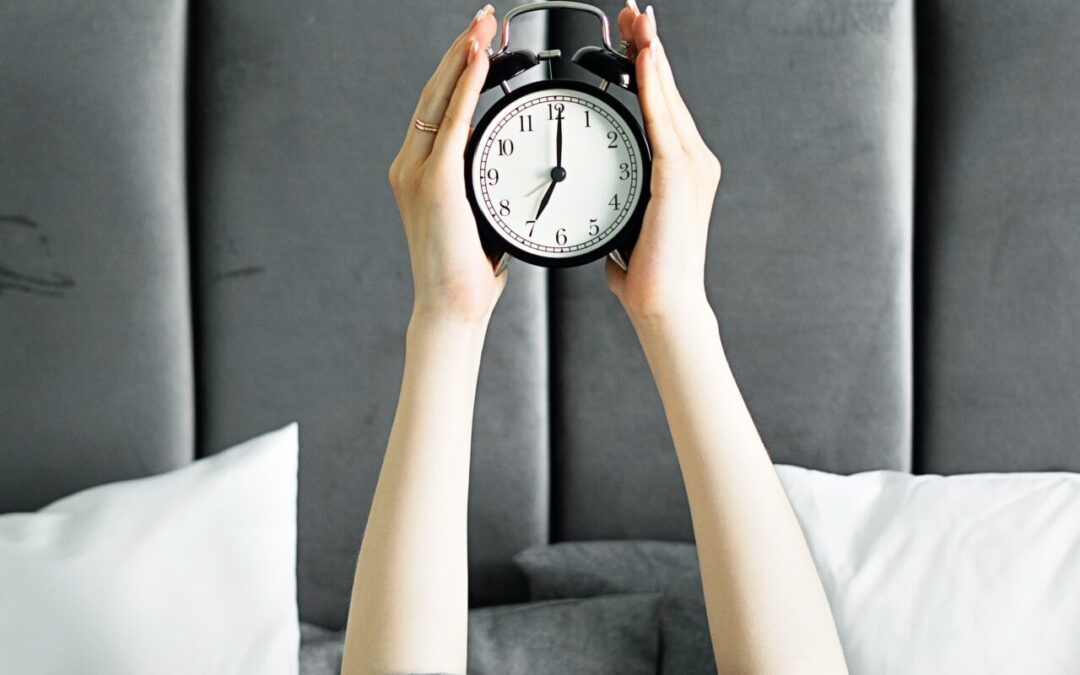The Transition to British Summer Time and its Sleep Impact
With the arrival of British summer time, we welcome longer days, warmer weather, and the promise of summer adventures. However, the transition also brings a slight hiccup—the clocks spring forward, robbing us of an hour of precious sleep. While it may seem like a small change, its impact on quality sleep can be significant. Research has shown that losing just 30 minutes of sleep, can affect various aspects of cognitive function and mood.
Controversy Surrounding Daylight Saving Time
To save energy during peak social hours, people started the practice of moving clocks forward in spring and back in autumn. Despite its original intention, this practice has faced opposition from various groups advocating for its abolition.
Adjusting to the Time Shift
When clocks spring forward, our body’s internal clock, known as the circadian rhythm, becomes misaligned with the typical day and night cycles. This disruption can leave us feeling groggy and out of sorts, especially when Monday morning rolls around.
Adapting to the Change
Most individuals should return to their normal sleep patterns within a day following the time change. People with consistent sleep routines might handle the transition better. However, individuals who are already experiencing sleep deprivation may feel more tired and drowsy during the day. They might also experience irritability, moodiness, and difficulty concentrating due to a lack of quality rest.
Preparing for the Clock Change
To ease the transition, consider these tips:
- Gradually adjust bedtime by 10 minutes in the days leading up to the clock change.
This gradual approach allows our bodies to adapt more smoothly to the upcoming change in time. By making small changes over a few days, our body clock can adjust more smoothly to the new schedule. This helps lessen the impact when the clocks move forward.
Additionally, gradually adjusting bedtime helps to minimise the impact on our sleep quality and overall well-being. Abrupt changes to our sleep schedule can lead to difficulties falling asleep, fragmented rest, and increased daytime fatigue.
- Expose yourself to natural or artificial light upon waking to suppress melatonin levels and combat sleepiness.
Light exposure when you wake up signals your body to be awake, reducing sleepiness. Light suppresses melatonin, a hormone that controls sleep, helping you feel awake and less sleepy during the day.
- Stay active and avoid napping to help reset your biological clock.
Staying active and avoiding napping helps reset your biological clock by maintaining wakefulness during the day. Napping or being inactive messes up your sleep routine, making it tough to adjust to the new time and reset your body clock.
- Practice good sleep hygiene, including limiting alcohol and caffeine, exercising earlier in the day, and establishing a calming bedtime routine.
These practices help your body’s natural rhythms, relax you, and get you ready for a peaceful sleep.
- Ensure your sleep environment is conducive to rest with a comfortable mattress, supportive pillows, and suitable bedding.
Creating a comfy sleeping space means having a cosy bed that supports your body and prevents pain. A good mattress and supportive pillows keep your spine aligned and reduce strain. Soft, breathable bedding helps regulate your temperature.
By preparing for the time change, you can wake up feeling refreshed and ready to enjoy the longer, brighter days ahead.

